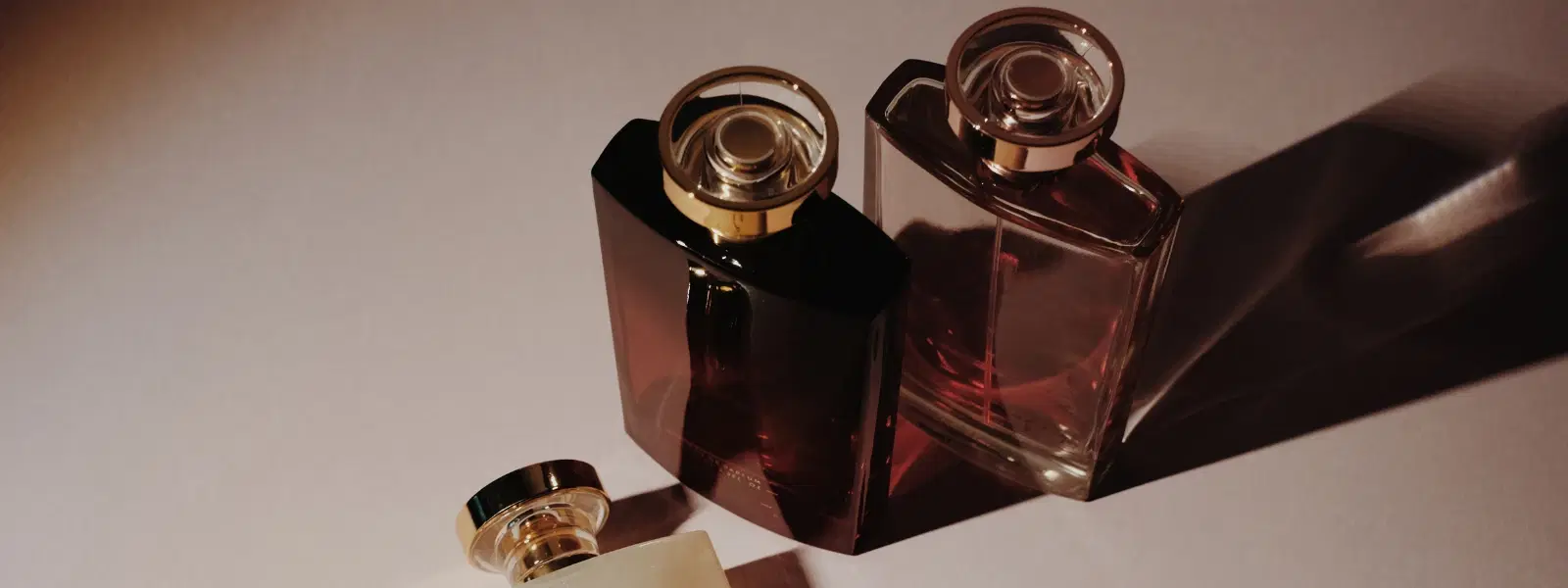
Luxury Edit
•03 min read
-8704a161-e35d-4932-b982-017add6889b1.png&w=3840&q=75)
The world of luxury fragrances can feel overwhelming when trying to determine the key differences between perfume and cologne. In this guide, we explore the distinctions between these two favorites, focusing on perfume vs cologne concentration, strength, longevity, and how they cater to personal style for both men and women. By the end of this piece, you will have a clear understanding of the difference between perfume and cologne, helping you select a scent that speaks to your individuality and personal style.
Understanding what defines perfume and cologne is the first step. The main difference lies in the concentration of fragrance oils. Perfume is cherished for its rich formulation, often boasting an oil concentration between 15-40%. This high concentration gives perfume its potent, long-lasting aroma that can make a bold statement for formal occasions or evenings out. In contrast, cologne has a lighter formulation with only 2-5% concentration of fragrance oils, making it a refreshing option for casual, daytime wear. The terms may often evoke gendered images, with perfume associated with women and cologne with men, but the formulation is not about the wearer. This luxury fragrance guide invites everyone to enjoy these scents as expressions of self-identity and style.
The concentration in fragrance plays a significant role in determining the overall intensity, strength, and longevity of a scent. Perfume, with its higher perfume vs cologne concentration, lasts for about 6-12 hours making it an excellent companion for long events. On the other hand, cologne typically lasts 2-4 hours, providing a light, invigorating scent suitable for warm climates or shorter outings. People often wonder about perfume vs cologne longevity, and it is clear that the choice depends on the occasion and desired impact.
Did You Know?
The intensity of a luxury fragrance is directly linked to its concentration. Higher oil concentration in perfumes not only enhances longevity and strength but also often elevates the overall experience, making it a true luxury indulgence.
Selecting between a perfume and cologne involves considering factors such as the occasion, the climate, and your personal preference. For instance, if you plan to attend a formal event or a long evening gathering, a perfume with its robust perfume vs cologne strength and enduring scent profile can be ideal. Conversely, cologne offers a fresh burst suitable for casual day events or warm weather. When discussing perfume vs cologne for men and perfume vs cologne for women, it's important to note that neither is exclusive to a single gender. Both fragrances are designed to provide a unique style expression, and the decision rests solely on the wearer's mood and preference. This approach reflects a commitment to inclusive, self-expressive fashion where every choice elevates personal style.

The realm of luxury fragrances extends well beyond perfume and cologne, further enriching your choices. Other types include Eau de Parfum (EDP), which sits between perfume and cologne in terms of concentration; Eau de Toilette (EDT), which offers a moderate aroma and balanced wear time; and Eau Fraiche, known for its minimal oil concentration and lightness, perfect for a refreshing feel in hot climates. Understanding these types of luxury fragrances helps you appreciate the subtle nuances in perfume vs cologne strength and concentration while guiding you through a broader selection of scents. The clear distinctions among these categories make it easier to find a fragrance that aligns perfectly with your lifestyle and mood.
For those looking to explore the best luxury perfumes and colognes, here are some top recommendations to consider. Among luxury perfumes, several options stand out for their rich, complex notes and lasting impression, ideal for when you want your scent to make a statement. Likewise, a selection of colognes offers a fresher, more understated aroma that remains perfect for everyday wear. Whether you favor bold and intricate perfumes or the light and revitalizing nature of colognes, your choice should reflect your individuality and the occasions you attend. When deciding how to choose between perfume and cologne, remember that the emphasis should be on the quality of the fragrance and how it harmonizes with your personal chemistry.
Perfume has a higher concentration of fragrance oils making it stronger and longer-lasting, while cologne has a lighter formulation ideal for casual wear.

No, these terms are not gender-specific. The primary difference is in the concentration of fragrance oils, not the intended wearer.
Perfume typically lasts 6-12 hours due to its richer concentration, whereas cologne lasts around 2-4 hours.
Consider the occasion, climate, and your personal preference when selecting a fragrance. Perfume suits formal events and cooler weather, while cologne is ideal for casual and warmer settings.
Yes, layering different fragrances can create a unique and personalized scent, provided they complement each other well.
In summary, the distinction between perfume and cologne goes beyond simple names and extends into the realms of concentration, longevity, and overall aroma strength. This guide has broken down the difference between perfume and cologne, addressing key aspects such as oil concentration, longevity, and even considerations for both men and women. Whether you are leaning toward the enduring allure of perfume or the vibrant freshness of cologne, your choice should serve as an authentic expression of your fashion identity. Enjoy exploring the diverse world of luxury fragrances and let your scent narrate your unique style story.